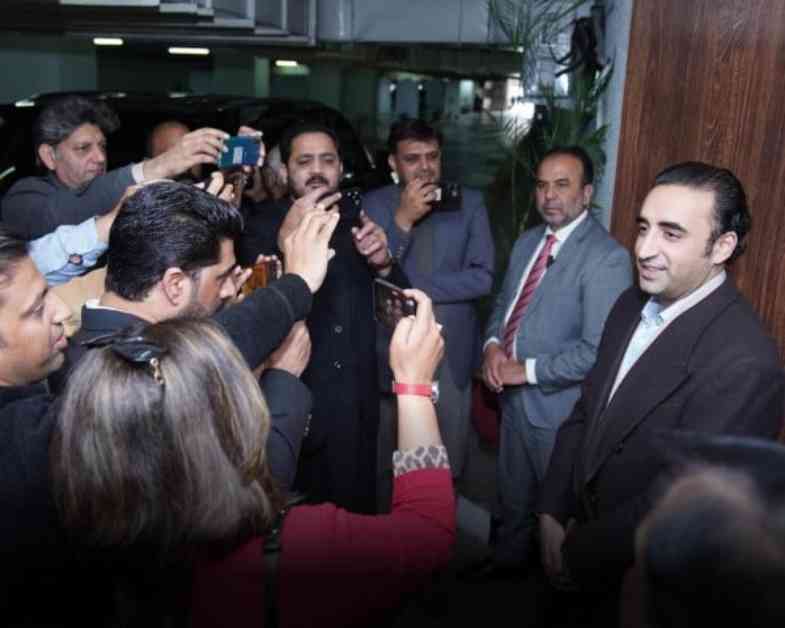Bilawal Bhutto Zardari’s Firm Stance on 26th Amendment
Pakistan Peoples Party (PPP) Chairman Bilawal Bhutto Zardari stood resolute in his assertion that only Parliament holds the authority to reverse the 26th Constitutional Amendment. Speaking at the Parliament House, Bilawal adamantly stated that no other institution would be recognized if it attempted to undo the amendment. This declaration comes in the midst of escalating debates surrounding the 26th Amendment and its potential rollback.
Parliament’s Sole Authority
During his address to media representatives, Bilawal emphasized the critical role of Parliament in upholding the constitutional amendments. He underscored that any attempt to reverse the 26th Amendment must be carried out exclusively by Parliament, cautioning against interference from external entities. This unwavering stance reflects PPP’s commitment to constitutional processes and democratic principles.
Key Points on Foreign Policy and Judiciary
Bilawal also delved into matters of foreign policy, highlighting Pakistan’s unwavering stance on safeguarding its nuclear assets and missile technology. He reaffirmed the party’s dedication to maintaining a robust foreign policy that prioritizes national security and strategic interests. Additionally, he emphasized the importance of consensus-building within the government before enacting significant legislative changes.
On the judicial front, Bilawal addressed the issue of judicial appointments and transitions within the Supreme Court. He stressed the need for a smooth transition process when appointing new judges, emphasizing respect for the Constitution and the rule of law. Bilawal’s remarks underscored the importance of upholding judicial integrity and preserving the sanctity of legal processes.
The Significance of the 26th Amendment
The 26th Constitutional Amendment, enacted in October 2024, introduced pivotal changes to Pakistan’s judicial appointment procedures. By altering Article 175-A, the amendment redefined the process for selecting the Chief Justice of Pakistan, marking a departure from traditional practices. The subsequent establishment of a parliamentary committee to oversee judicial appointments signaled a shift in the country’s legal landscape.
Continued Debate and Legal Challenges
Despite the passage of the 26th Amendment, legal challenges and debates persist regarding its implications. The upcoming hearing before a constitutional bench of the Supreme Court on January 27 underscores the contentious nature of the amendment. Bilawal’s resolute stance on upholding Parliament’s authority in amending the constitution sets the stage for ongoing legal battles and political discourse surrounding the 26th Amendment.
Bilawal’s unwavering commitment to parliamentarian principles and democratic values resonates as a clarion call for upholding constitutional integrity and respecting institutional authority. His steadfast defense of the 26th Amendment highlights the broader implications of legal reforms and underscores the critical role of Parliament in shaping Pakistan’s constitutional landscape.









